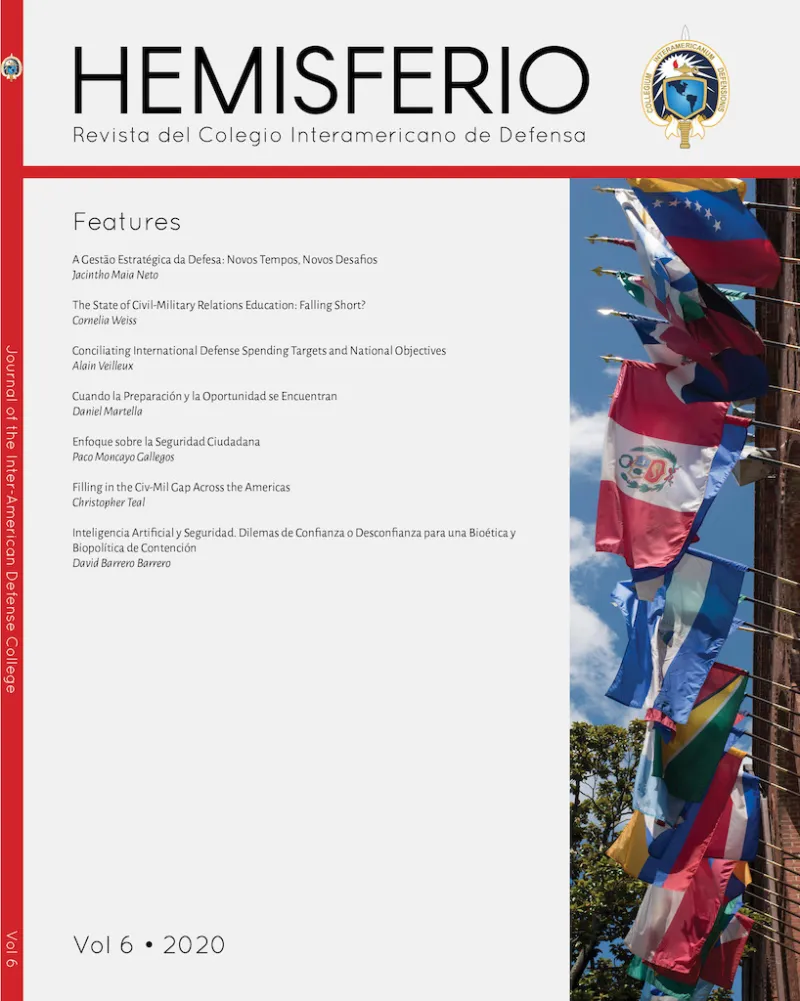Filling in the Civ-Mil Gap Across the Americas
DOI:
https://doi.org/10.59848/20.1207.HV6n2Keywords:
civil-military relationship, democracy, security, populism, the AmericasAbstract
This article examines how civilian governments and their militaries across the Americas must confront increased security responsibilities and analyzes consequences to maintain a healthy Civil-Military relationship balance. As elected leaders in the region weigh addressing multiple social challenges, they must pay special attention to how their actions could upend Civil-Military progress and lead to destabilization of democracy if not handled correctly, especially with a rise in populism. Instituting and institutionalizing reforms can have a positive and lasting impact for the region and cement democratic control for years to come.
Downloads
Published
Issue
Section
License
Copyright (c) 2020 Hemisferio Revista del Colegio Interamericano de Defensa

This work is licensed under a Creative Commons Attribution-NonCommercial 4.0 International License.


